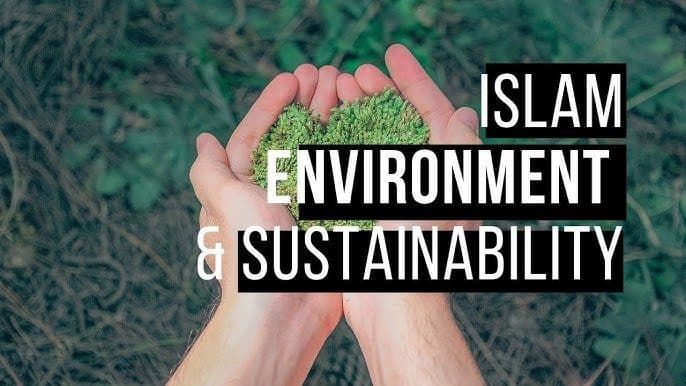Islam and the Environment: A Duty to Protect Nature
By Future Rafay
•12/25/2024
•Islamic

Introduction to Islam and the Environment
In Islam, the relationship between humans and the environment is deeply rooted in the concept of stewardship. Muslims are taught that the Earth and all of its resources are a gift from Allah and that they have a responsibility to protect and preserve the environment. The Qur'an and the teachings of the Prophet Muhammad (PBUH) provide clear guidelines on how to maintain a balanced and respectful relationship with nature, emphasizing sustainability, moderation, and respect for all living creatures.
Allah’s Creation: A Trust and Responsibility
Islam teaches that the natural world is a sign of Allah’s existence, power, and wisdom. Every element of nature, from the mountains and rivers to the animals and plants, is part of Allah’s creation. Humans are entrusted with the responsibility to protect and preserve this creation, as it is a trust (Amanah) given to them by Allah.
Qur’an (Al-Baqarah 2:164) : "Indeed, in the creation of the heavens and the earth, and the alternation of the night and the day, and the [great] ships which sail through the sea with that which benefits people, and what Allah has sent down from the heavens of rain giving life to the earth after its lifelessness and dispersing therein every kind of moving creature... are signs for a people who use reason."
The Qur'an emphasizes the significance of reflecting on the natural world as a means of recognizing the greatness of the Creator. Muslims are encouraged to appreciate the beauty of nature and recognize it as a sign of divine power.
Sustainability and Moderation
Islam encourages the sustainable use of resources. The teachings of Islam advocate for moderation in consumption, avoiding excessiveness, and ensuring that resources are used wisely and not wasted. The Prophet Muhammad (PBUH) is reported to have said: "The son of Adam spends in excess, but when he reaches his grave, his wealth does not follow him." (Sahih Muslim)
This teaching reflects the Islamic view that human beings are not owners of the Earth but rather caretakers. Muslims are encouraged to take only what is necessary and avoid wastefulness, which is considered sinful. Islam teaches that resources should be used in moderation, not just for personal benefit but to ensure that future generations can also enjoy the blessings of the Earth.
Protecting Animals and Plants
Islamic teachings emphasize the importance of treating animals with kindness and respect. The Prophet Muhammad (PBUH) is reported to have said: _"Whoever is kind to the creatures of God, he is kind to himself." (Bukhari)**
Muslims are encouraged to treat animals with compassion, provide for their needs, and avoid causing unnecessary harm. Islam also prohibits cruelty to animals and promotes the responsible use of animals for food, labor, and other purposes.
In addition to animals, Islam encourages the preservation of plants and natural habitats. The act of planting trees is highly regarded, and the Prophet Muhammad (PBUH) encouraged Muslims to plant trees and vegetation. He said: "If a Muslim plants a tree or sows seeds, and then a bird, or a person, or an animal eats from it, it is regarded as a charitable gift (sadaqah) for him." (Sahih Muslim)
The Role of Muslims in Environmental Conservation
In modern times, environmental challenges such as climate change, pollution, and deforestation have become pressing issues. Islam calls upon its followers to actively contribute to environmental conservation. Muslims are encouraged to engage in efforts to reduce pollution, conserve water, plant trees, and protect endangered species.
Islamic environmental ethics also promote the idea of a "green" economy, advocating for sustainable practices in agriculture, energy, and waste management. The concept of Khilafah (stewardship) emphasizes that humans are entrusted by Allah to protect the Earth, ensuring that it remains habitable for all of Allah’s creation.
Conclusion
Islam offers a comprehensive approach to environmental protection, grounded in the principles of stewardship, sustainability, and respect for nature. The teachings of the Qur'an and the Prophet Muhammad (PBUH) emphasize that humans have a duty to care for the Earth and its resources, ensuring that they are preserved for future generations. By following these principles, Muslims contribute to the well-being of the planet and help maintain a balanced, harmonious relationship with the natural world.
Comments
No comments yet. Be the first to comment!